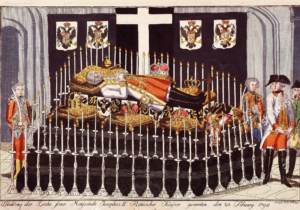World Cup star Lionel Messi credits God for his success to thunderous applause, yet Hungarians must fight to defend references to their Christian heritage against foreign accusations of ‘Christian nationalism.’ Contra critics of religion in public life, values-based constitutionalism and religious neutrality can coexist where states make value-based decisions on issues of culture and public services. Though defending both traditional values and religious freedom is seen as increasingly divisive, religious traditions have been essential to uniting disparate groups across and within nations.
Totalitarian regimes and anti-establishment movements, typically atheistic in orientation, fear the power of churches to organize and unite communities regardless of state recognition. The portrayal of certain beliefs and religions as radical or nationalist has led to religion becoming a scapegoat for all manner of societal ills across the world. Yet despite anti-religious rhetoric, Christianity has long been an important aspect of European history.
Today, modern European democracies like the UK and Hungary have separated state and church affairs through the principle of religious neutrality. This allows for value-based decision-making while also respecting the separation of church and state. The historical perspective and the value-based approach are not alien to national constitutions. Since Hungary was founded in 1000, making it the 7th oldest country in the world according to self-sovereignty, history does matter. Hungary’s constitution starts with the phrase ‘God bless the Hungarians,’ a nod to the country’s Christian roots dating back to 1001. This religious foundation, recognized in the constitution’s value-based approach, has played a significant role in Hungary’s history and its place in Christian Europe.
A thousand years ago, the pagan Hungarian tribes faced a difficult choice: align with the Catholic Holy Roman Empire in the West or the Orthodox Byzantine Empire in the East. They ultimately chose to integrate with the West, adopting Christianity and Western styles of governance and social structure. This decision, made by Hungary’s first king St. Stephen, helped to cement the country’s place in the European alliance system, connected by Christianity and papal confirmation of stable rule.
Christianization in Hungary followed the Western European model and involved adopting contemporary values and legislative solutions. The Catholic Church played a significant role in the formation of the Hungarian political community and in the country’s political and legal affairs, as many politicians, scribes, and law experts were clergymen. From the foundation of the Christian state until the mid-20th century, the Hungarian monarchy was continuously recognized from a religious standpoint.
After World War I, Hungary, along with the dissolved Habsburg Monarchy, lost a significant portion of its territory and population. The country faced numerous social, economic, and administrative challenges, later falling under Nazi occupation before being “liberated” by the Soviet Union. For five decades, Hungary experienced political oppression, economic regression, and cultural and social erosion at the hands of the Soviets. This repression included the destruction of the nation’s Christian foundations. Despite these trials and tribulations, Christianity has played a crucial role in preserving Hungary’s national identity.
After 50 years of socialist rule, Hungary adopted a liberal democratic model, including religious neutrality, following the regime change in 1990. The first freely elected parliament amended the 1949 Socialist Constitution, but it was not until 2010, when the government gained a supermajority that the new constitution, called the Fundamental Law, was adopted. This document recognized Hungary’s original foundation and common heritage, including its Christian foundation and Judeo-Christian values, and replaced the alien socialist constitution.
Hungary’s new constitution recognizes the country’s Christian heritage and protects fundamental values such as religious liberty and freedom of speech. It does not establish a state religion or official state church and allows citizens to worship (or not) according to their conscience. This protection of Christian beliefs is not a new development, but rather reflects Hungary’s long history of preserving its Christian foundations and values, even through difficult times.
Despite facing numerous challenges and oppressive regimes throughout its history, whether under 150 years of Turkish subjugation or 50 years of Communist oppression Hungary’s Christian heritage has played a significant role in shaping the country’s national identity. Hungary, like other modern European democracies, has both religious neutrality and value-based constitutionalism, allowing for separation of church and state while still recognizing of country’s historical foundations. Today, accusations labeling Hungarians as radicals and painting Christians as enemies will serve only to isolate them from the international community.







 Sponsor a student for Christianity & National Security 2024
Sponsor a student for Christianity & National Security 2024